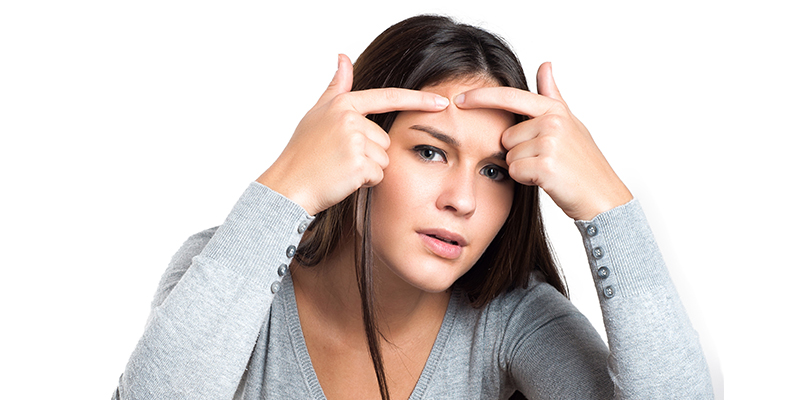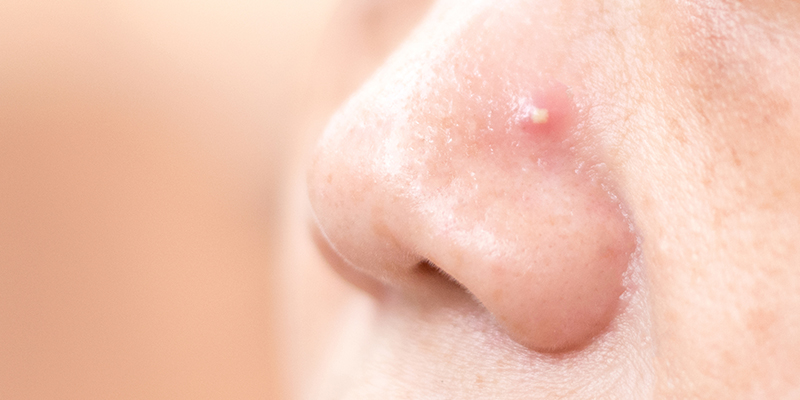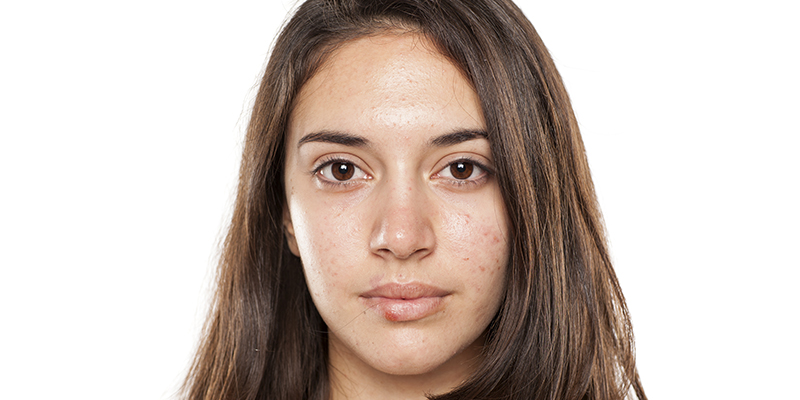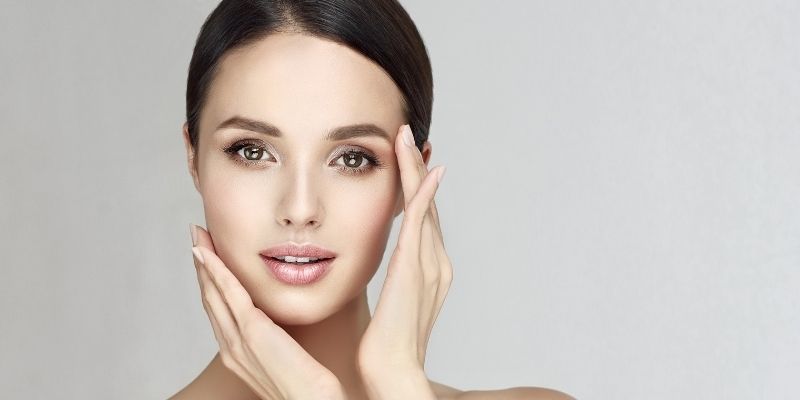Table of Contents
How To Prevent Pimples
Are you frustrated with pimples that always appear at the worst moments? Are you constantly worried about how to prevent pimples? You are not alone! Preventing pimples is easier than you think. With critical tips and lifestyle changes, you can easily prevent pimples and keep your skin clear. In this guide, we will cover some easy skincare routines and diet tips on how to prevent acne and pimples. These natural ways to prevent pimples will help you avoid breakouts and embrace a healthier, smoother complexion today!
Table of Contents

How To Prevent Pimples On Face Forever?
If you are wondering how to prevent pimples on face forever, you must know that healthy skin comes from a balance of dietary intake, hormones, genes, skincare regime and workout. Below are some easy-to-do tips for acne prevention. However, you must note that these can prevent pimples from growing only when practised consistently and regularly.
Avoid Touching Your Face:
If you want to know how to prevent acne on face, then keeping your hands away from it might be the first step! Throughout the day, your hands come into contact with countless surfaces, picking up dirt, oil, and bacteria. When you touch your face, these impurities transfer to your skin, leading to clogged pores and breakouts. Therefore, keeping your hands away from your face can significantly reduce the risk of pimples and keep your skin cleaner.
Limit Makeup:
Makeup can be fun and empowering but can also clog your pores, mainly if you use heavy or oily products. Hence, opting for lighter, non-comedogenic makeup might be the best way to prevent pimples, allowing your skin to breathe and avoiding breakouts. That is why it is important to always remove your makeup thoroughly before bed to give your skin a chance to recover.
Avoid Oily Hair Products:
Hair products that contain oils can quickly transfer to your face, especially if you have bangs or touch your hair frequently. These oils can clog pores and cause acne. As a result, choosing oil-free or non-comedogenic hair products is one of the best acne prevention measures. It minimises the risk of pore clogging, helping to keep your skin clear and free of breakouts.
Wash Your Face Twice Daily:
If you want to know how to prevent pimples on face, thorough cleansing is a must. Cleansing your face in the morning and at night removes the excess oil, dirt, and impurities that accumulate during the day and even at night while you sleep. Therefore, this routine helps clear your pores and reduces the likelihood of pimples. Ensure you use a gentle cleanser that suits your skin type to avoid irritation.
Limit Sun Exposure:
While a bit of sun can benefit you, too much can damage your skin and worsen acne. UV rays can increase inflammation and oil production, leading to more breakouts. Hence, wearing sunscreen and limiting your time in direct sunlight protects your skin from these harmful effects, helping to prevent acne and other skin issues.
Eat A Healthy Diet:
Your diet plays a vital role in your skin health. When your diet is balanced and contains ample fruits, whole grains, veggies, and lean proteins, your body gets all the essential nutrients that support clear skin. Avoiding high-sugar and high-fat foods can reduce inflammation and prevent acne flare-ups, helping you achieve a radiant complexion.
Exfoliate:
Exfoliation is an essential step in acne prevention. It helps remove the regular build-up of dead skin cells that can eventually clog pores and cause breakouts. Therefore, using a gentle exfoliator once or twice a week helps clear your pores and promotes healthy skin renewal. However, over-exfoliating can irritate your skin, so finding a balance that works for you is essential.
Moisturise:
If you want to prevent acne breakouts, keeping your skin adequately hydrated and maintaining a healthy skin barrier is essential. When your skin is dry, it often produces more oil to compensate, leading to clogged pores and pimples. Hence, using a suitable moisturiser helps maintain hydration and balance, reducing the risk of acne and keeping your skin soft and smooth.
Check Your Hair Care Ingredients:
Many people who consult dermatologists for ways to prevent pimples from growing ignore their hair care products completely. Little do we realise that certain hair care products contain ingredients that can clog pores if they come into contact with your skin. Therefore, avoiding products with heavy oils or comedogenic ingredients helps prevent acne breakouts, especially around the hairline and forehead. Look for hair care products labelled as non-comedogenic or oil-free.
Wash Your Hair Regularly:
Washing your hair regularly removes excess oils that can transfer to your face and cause acne [1] . Clean hair also reduces the likelihood of oil build-up on your skin, helping to prevent pimples. How often you need to wash your hair depends on your hair type and personal preference, but keeping it clean is vital.
Reduce Stress:
Did you know that higher stress levels can trigger specific hormonal changes that lead to acne? [7] Yes, it is true. That is why finding ways to manage stress, such as practising relaxation techniques, exercising, or engaging in hobbies, helps maintain hormonal balance and reduces the likelihood of stress-related breakouts. A calmer mind often leads to healthier skin.
Never Pick Or Pop Pimples:
It can be tempting to pick or pop pimples, but this can introduce bacteria, cause further inflammation, and even lead to scarring. Letting pimples heal naturally reduces the risk of spreading bacteria and worsening the breakout. Use a spot treatment to help speed up the healing process if necessary.
Stay Hydrated:
Drinking plenty of water helps flush out toxins from the body, keeping your skin hydrated from the inside out. Proper hydration supports overall skin health and reduces the risk of clogged pores and acne, promoting a clearer, more radiant complexion. Therefore, drink at least eight to 10 glasses of water daily.
Consider Topical Retinoids:
Retinoids promote skin cell turnover and prevent clogged pores, making them an effective treatment for acne. [2] Hence, using topical retinoids as part of your skincare routine can reduce breakouts and improve skin texture. Consult a dermatologist to determine if retinoids suit you and get the appropriate prescription.
Avoid Foods That Cause Acne:
Certain foods, such as the ones high in sugar and dairy, may trigger acne in some people. [3] Therefore, identifying and limiting these food items can reduce inflammation and prevent breakouts. You can maintain a food diary to help spot any patterns and make necessary adjustments to your diet for clearer skin.
Exercise Daily:
Regular exercise improves circulation, which helps nourish your skin cells and keep them healthy. [4] Sweating during exercise also helps unclog pores, but it is essential to cleanse your skin afterwards to prevent sweat from causing acne. When you exercise to prevent pimples, it also reduces stress, which can help prevent stress-related breakouts.
Know Your Skin Type:
Understanding whether your skin is oily, dry, combination, or sensitive is essential for picking the right skincare products and routines. Therefore, use products tailored to your skin type to prevent overdrying or excess oil, reduce the risk of pimples and promote a healthy complexion. Consult a dermatologist if you are unsure about your skin type.
Apply Topical Treatments:
Acne-specific topical treatments, like benzoyl peroxide or salicylic acid, can help target and prevent pimples. These treatments reduce inflammation, kill bacteria, and clear pores, contributing to clearer skin. Hence, consistent use as directed can significantly affect your skin’s appearance.
Consult A Dermatologist:
A dermatologist can provide personalised advice and treatments tailored to your skin type and acne severity. Therefore, professional guidance ensures you are using the most effective products and routines to manage and prevent acne, leading to healthier, clearer skin in the long term. Do not hesitate to seek professional help if over-the-counter products are not working.
Expert Advice
A dermatologist can provide personalised advice and treatments tailored to your skin type and acne severity. Therefore, professional guidance ensures you are using the most effective products and routines to manage and prevent acne, leading to healthier, clearer skin in the long term. Do not hesitate to seek professional help if over-the-counter products are not working.
Takeaway
You can prevent pimples on face with simple lifestyle changes and mindful skincare. Avoid touching your face, limit makeup, and choose oil-free hair products. Wash your face and hair regularly, stay hydrated, and avoid popping pimples. Managing stress and eating a balanced diet are equally important, so do not overlook them. While doing all of this, remember that nothing beats professional advice and guidance.
Before you start any skincare remedy or regime, consider consulting a dermatologist for personalised guidance on how to prevent pimples and achieve the best results.
Frequently Asked Questions On Acne Prevention
A1. Foods with low glycemic index, non-dairy foods, and those rich in omega-3 fatty acids are intakes that prevent acne. [5] Examples include fish, soya beans, spinach and leafy greens, flaxseeds, etc.
A3. The effects of Vaseline depend upon your skin hygiene. Using Vaseline without washing your face or deep cleansing may trap oil and dirt and lead to acne. However, using Vaseline on a thoroughly cleansed face helps prevent acne by keeping your skin hydrated and plump.
A4. You can prevent pimples for oily skin by cleansing regularly and using oil-free, non-comedogenic products. You must also exfoliate weekly and avoid using heavy makeup. Maintaining hydration with light moisturisers, along with consuming a balanced diet, always helps.
A5. Dry skin does not necessarily prevent acne. Dry skin can still develop acne, and in some cases, it may worsen the condition. When your skin is dry, it often overcompensates by producing more oil, which can clog pores and lead to breakouts.
A6. Maintain complete body hygiene and ensure taking a shower after workouts and perspiration. Do not pop the pimples, and change bedsheets and nightwear regularly and frequently to prevent infection from spreading.
A7. You can reduce the portion size of your whey protein if it is causing acne. Consult a dermatologist for a good skincare regime that helps. Also, look for alternatives to whey, such as lactose-free pea protein supplements.
Our certified subject matter experts do extensive research and collate facts from reputed scientific journals and international studies to create informative and engaging articles related to all your dermatology concerns. They strive to help you decipher medical jargon, distinguish fact from fiction and overcome paranoia. Our qualified medical board or expert panel goes a step further to verify these facts based on their rich academic knowledge, vast clinical experience and critical industry insights to ensure you consume only medically accurate content that empowers you to make informed decisions about your hair and skin-care treatments and weight management. Check out our Editorial policy for further details.
- https://www.aad.org/public/diseases/acne/skin-care/tips
- https://www.medicalnewstoday.com/articles/321411#how-to-prevent-pimples
- https://www.webmd.com/skin-problems-and-treatments/acne/10-tips-for-preventing-pimples
- https://www.webmd.com/skin-problems-and-treatments/acne/10-tips-for-preventing-pimples
- https://www.medicalnewstoday.com/articles/hormonal-acne-diet#foods-to-avoid
- https://www.medicalnewstoday.com/articles/322639#foods-to-improve-acne
- https://www.medicalnewstoday.com/articles/does-sweat-cause-acne
- https://health.clevelandclinic.org/does-exercise-help-acne
- https://www.ncbi.nlm.nih.gov/pmc/articles/PMC5722010/










